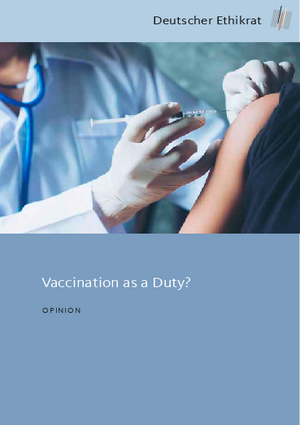Vaccination as a Duty?
Published: 27 June 2019
Vaccinations are among the most successful preventive measures in medicine and the most important option to prevent infectious diseases caused by viruses. Nevertheless, there are persistent reservations about vaccinations, especially regarding possible side effects. In 2019, the World Health Organization (WHO) declared vaccine hesitancy to be one of the ten greatest global threats to health. As the example of measles shows, such hesitancy can stand in the way of international efforts to contain infectious diseases. Despite a large-scale WHO campaign to eradicate measles, to which Germany, on numerous occasions, has committed itself by implementing national vaccination and action plans, local outbreaks occur repeatedly in this country and elsewhere.
Using the example of measles, the German Ethics Council has examined which regulatory measures are ethically and legally acceptable to meet vaccination goals. In its Opinion, the German Ethics Council states that it is not a purely private matter, but rather a moral duty to have oneself and one’s own children vaccinated against a highly contagious infectious disease such as measles. However, the existence of this moral duty does not necessarily entail the justification of a legal obligation to vaccinate. At the time of publication of its Opinion, the German Ethics Council considers such a mandatory vaccination policy only to be appropriate for personnel in the health, social and educational sectors. However, the Council recommends a number of other measures, which, taken together, could be suitable to close any remaining vaccination gaps and achieve the goal of eliminating measles permanently.

